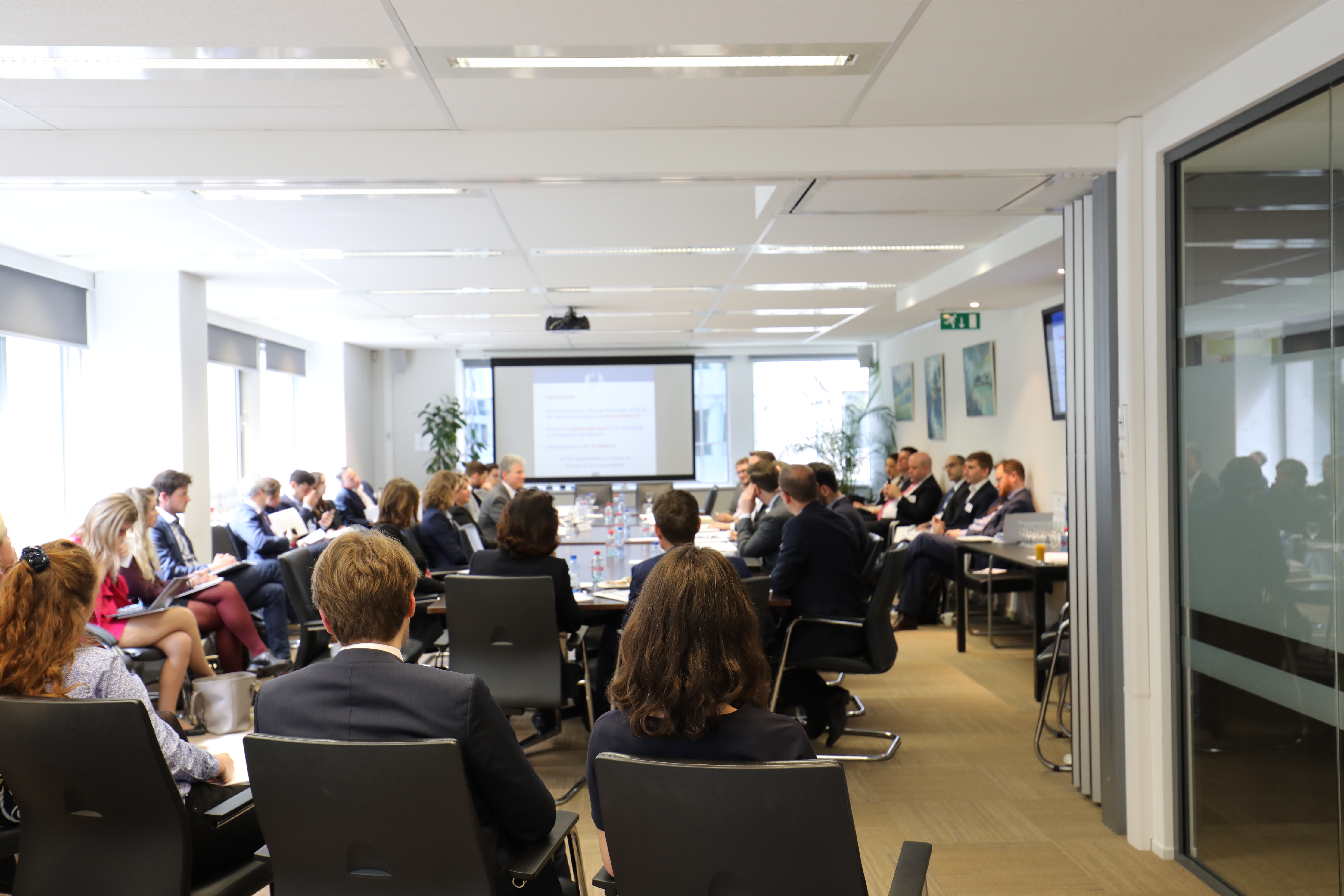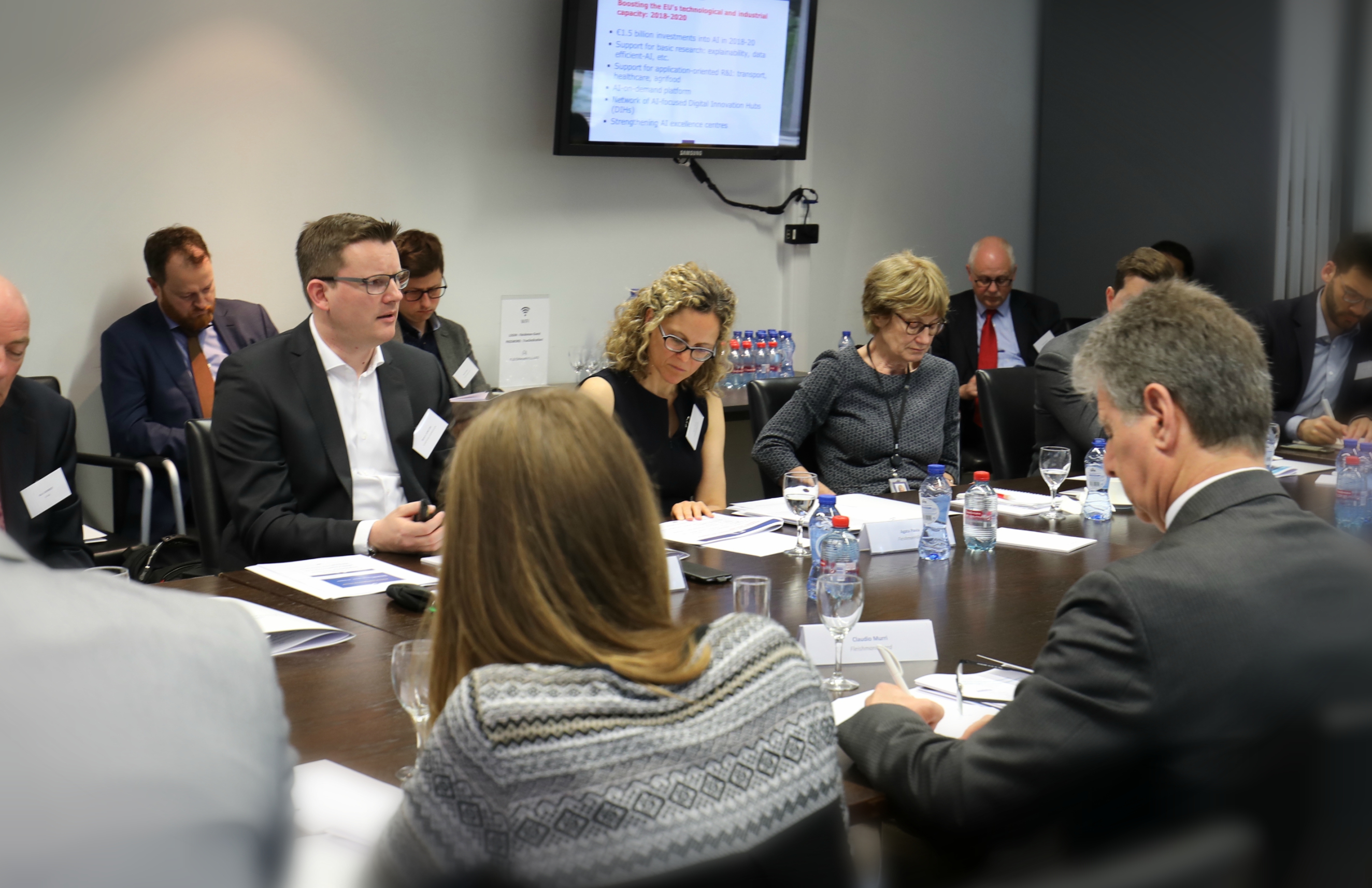Outcome of FleishmanHillard's Roundtable on Artificial Intelligence

On Thursday 26 April, FleishmanHillard held a roundtable entitled ‘Artificial Intelligence and the EU: A global leader or a missed opportunity?’. There was a strong attendance at the event with industry, academia and policymaker representatives enthusiastically debating the implications and evolution of Artificial Intelligence (AI) with Bjoern Juretzki, Assistant to the Director-General in the European Commissions’ DG CONNECT. Agata Pavía, VP & Head of FleishmanHillard Technology Team, welcomed attendees to the Roundtable, while Claudio Murri, Senior Advisor in FleishmanHillard’s Local Advisory Board, provided an overview of the AI debate, before passing to floor to Mr. Juretzki.
Mr. Juretzki provided attendees with a detailed overview of the Commission’s Communication on AI, which had only been published the day before on 25 April. He touched upon the political context with 24 Member States, and Norway, signing the Declaration of cooperation on AI, as well as the Commission’s strategic approach to focus on technological and industrial capacity, socio-economic changes, and the ethical and legal framework. In creating a human-centric AI that has a unique European approach, the Commission is certain that Europe could be a key global player.
In the ensuing discussions, attendees highlighted that AI was a cross-cutting issue and thus the Commission should not set out a one-size fits all solution in terms of regulatory or ethical requirements. There were calls for more coordination between Member States’ AI initiatives, more EU involvement on AI within standardisation bodies, and more clarity on the legal framework. Additionally, attendees expressed an interest in the structure of the yet to be established EU AI Alliance, the need to enhance the appropriate digital skills, and how the Commission would proceed on business-to-business (B2B) data sharing, which were all seen as key for the development of AI. Looking forward, it was raised that the EU had to overcome the bad perception of AI as technology that would lead to unemployment and the ‘rise of the machines’. The numerous industry examples raised showed how beneficial AI could be to all individuals. On the political climate, it was raised that the next G7 meeting held by Canada would include work on AI, and whilst there was currently considerable ‘hype’ around AI there would continue to be strong political backing for the foreseeable.

Find Out More
-
Why the EU can’t risk failure at COP27
November 4, 2022


